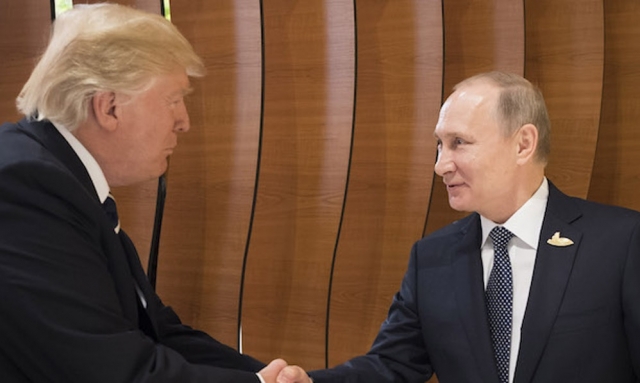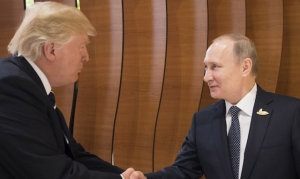Support For Sanctions Against Russia Wavering
When announced on June 8 that Trump supports inviting Russia to re-join the Group of Seven, from which Russia was expelled in 2014 for its annexation of Crimea, President Trump became the latest in a long line of populist world leaders who seemingly want to overlook Russia’s aggressive actions.
“Whether you like it or not … we have a world to run and we should have Russia at the negotiating table,” the U.S. president said. Italian Prime Minister Giuseppe Conte supported President Trump, stating on Twitter that it would be “in the interests of everyone.”
Russian President Vladimir Putin visited Austria on June 5, where he asked for European Union sanctions on Russia to be lifted. “These actions are harmful for everyone, both for those who initiate them and for those against whom they are directed,” said the leader of the Russian Federation. “I therefore think everyone has an interest in cancelling them."
Austrian Vice Chancellor Heinz-Christian Strache agreed. “It is high time to put an end to these exasperating sanctions and normalize political and economic relations with Russia”. Strache is the head of the far-right, pro-Moscow Freedom party. In 2015 he publicly ignored Russia’s 2008 aggression in Georgia and its 2014 annexation of Ukraine’s Crimea region, and instead blamed the West for strained relations.
“It wasn’t Russia who was the aggressor in recent decades, who was trying to spread its zone of military influence towards the border of the European Union,” he said. In 2016, leaders of Strache’s Freedom party traveled to Moscow and signed a five-year agreement with Putin’s United Russia party.
In 2017, Czech President Milos Zeman said Europe should accept Russian annexation of Crimea as a fait accompli. He asserted that the only way Ukraine could regain its sovereignty would be by a European war that had to be avoided; he complained that sanctions were a lose-lose strategy. “I do not discuss the justification of the sanctions,” Zeman said. “I discuss the efficiency of sanctions. Just today, the German daily Welt published an article which says that the European Union loses by sanctions, and there is practically no damage for Russia.”
While sanctions fatigue seems strong among Europe’s right-wing ideologues, Europe’s thirst for natural gas continues to drive the continent into Russia’s arms. Gazprom Export reported record sales to Europe in the first quarter: “According to preliminary results of Q1 2018, an absolute monthly record of 19.6 billion cubic meters (bcm) was set for gas supplies in March to the Far Abroad countries. The previous record of 19.1 bcm was set in January 2017.”
For the quarter as a whole, Gazprom supplied a total of 54.4 bcm, an increase of 6.6% over the same period in 2017. The largest increases went to the Netherlands by 127%, Austria by 83.5%, Greece by 36.4% and Finland by 15.5%.
Europe’s need for natural gas is so strong that pro-sanctions countries such as Germany are willing to support Gazprom’s Nord Stream 2 project, which would eliminate Ukraine’s role as a transit country. In Bulgaria, where Russia’s pet South Stream project ran aground amid opposition from the EU, President Rumen Radev now supports the Kremlin’s TurkStream project. “Such ambitions do not differ from Germany’s intention to implement the Nord Stream 2 gas pipeline project,” he said.
Following talks with Putin on May 30, Bulgarian Prime Minister stated on his Facebook page that the European leg of the pipeline would be directed to Bulgaria. “The second fork of TurkStream will reach Bulgaria and through it gas will come from Russia,” he wrote. “I am thankful that we are returning to the gas distribution role that we had in the Balkans.”
In the light of these calls to restore relations with Russia, it is important to keep in mind that Russia has changed European borders by force, sent troops into European countries, supported separatist groups, and interfered in Western elections.
By Shawn Wayne












